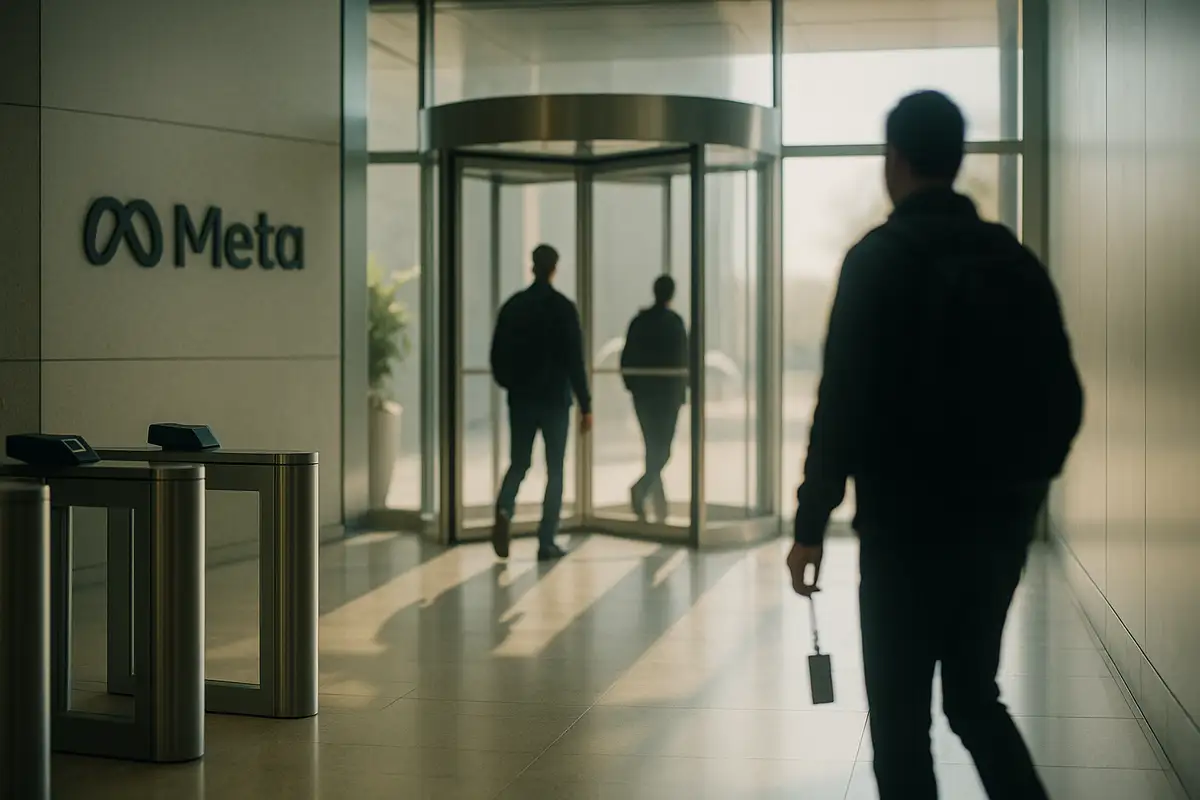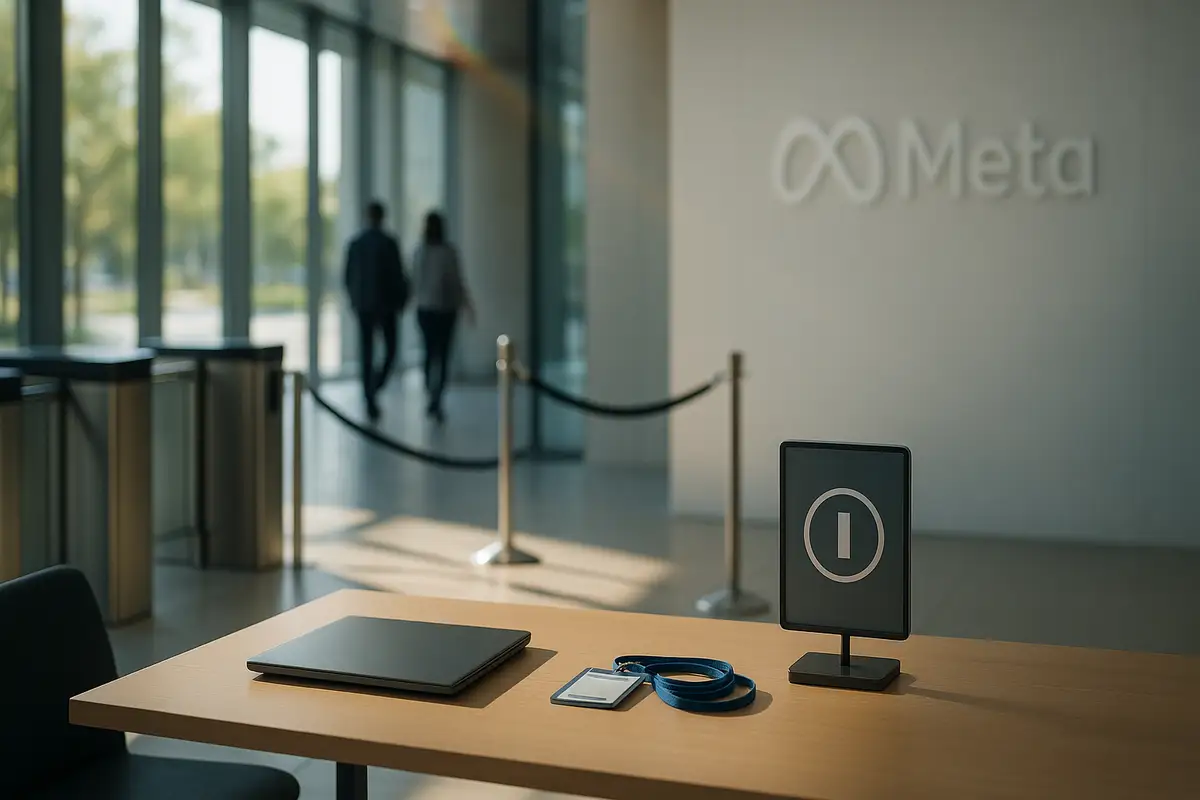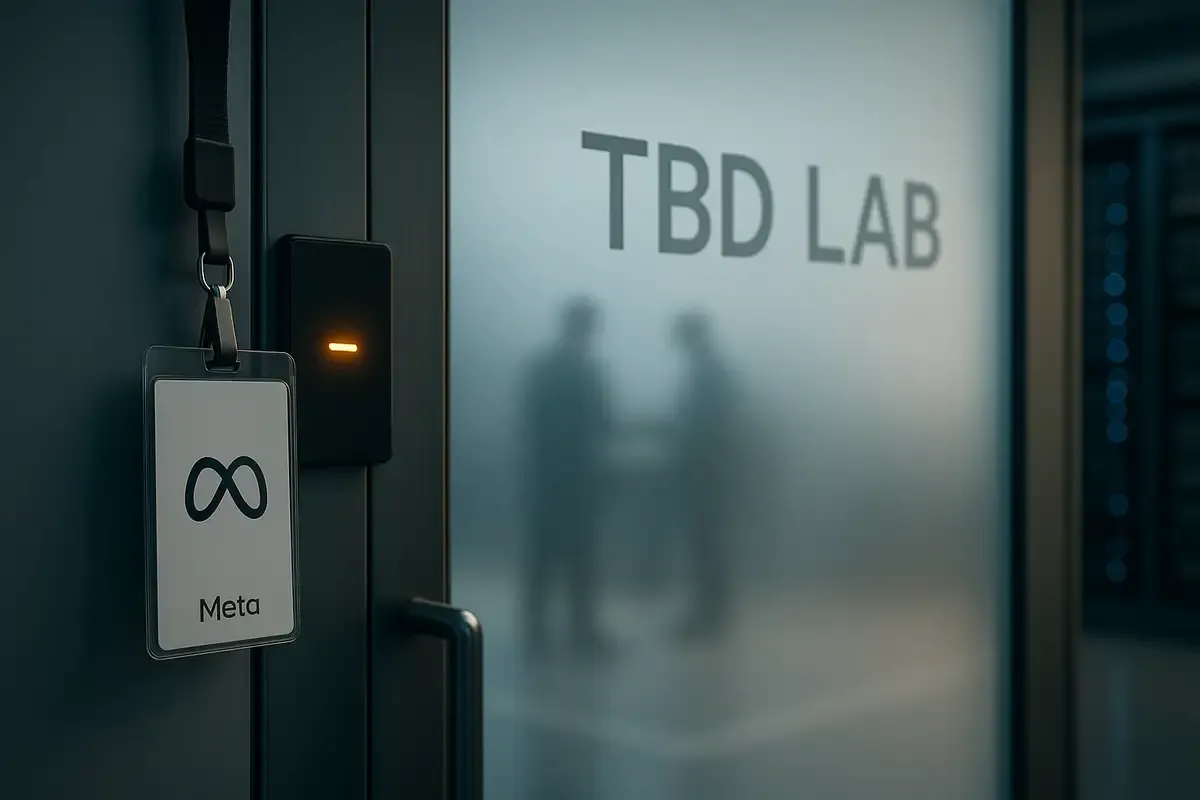💡 TL;DR - The 30 Seconds Version
👉 ChatGPT co-creator Shengjia Zhao nearly quit Meta within a week of joining in June, forcing the company to triple his compensation and grant chief scientist status.
📊 Meta recruited 50+ AI researchers including 21 from OpenAI, but at least 4 high-profile hires have already defected back to rival labs within months.
🏭 The company restructured its AI division for the fourth time in six months after Llama 4 received lukewarm reviews compared to Chinese rival DeepSeek.
🔒 Meta created the secretive TBD Lab near Zuckerberg's desk with badge-restricted access, where elite researchers' names don't appear on internal charts.
💰 The talent war intensified industry-wide spending with Meta's AI budget hitting $72 billion in 2025, up $30 billion from 2024.
🌍 The crisis exposes fundamental tensions between academic research culture and corporate hierarchy that compensation alone cannot resolve.
Meta's $72 billion AI bet turns toxic, Million-dollar recruits jumping ship within weeks
Meta's expensive AI talent hunt is backfiring. ChatGPT co-creator Shengjia Zhao nearly quit within a week of joining in June—forcing the company to triple his compensation and grant him chief scientist status to retain him. At least four other high-profile recruits have already defected back to OpenAI or rival labs, according to internal sources.
The departures expose a deeper management crisis at the $2 trillion company. Zuckerberg spent millions recruiting over 50 AI researchers this summer, including 21 from OpenAI, but the integration is fracturing along predictable lines: new stars demand special treatment, existing employees lobby for parity, and organizational culture buckles under the weight of sudden hierarchy changes.
The timing wasn't coincidental. Meta's talent offensive intensified after its Llama 4 model received lukewarm reviews compared to Chinese rival DeepSeek, prompting Zuckerberg to restructure the AI division for the fourth time in six months. The company dissolved its AGI Foundations team and created four specialized units, including the secretive TBD Lab that operates from a badge-restricted area near Zuckerberg's Menlo Park desk.
The psychology of million-dollar defections
The defection pattern reveals the limits of compensation-driven recruitment. Rishabh Agarwal, a Toronto-based researcher who joined in April, left for startup Periodic Labs after being told he'd have to work in-person at Meta's headquarters. Two other recent hires from OpenAI and xAI—Avi Verma and Ethan Knight—returned to OpenAI despite presumably lucrative packages.
The departures aren't just about money or location flexibility. They reflect a deeper tension between Meta's corporate structure and the academic culture that top AI researchers expect. Unlike traditional tech roles, these researchers operate in a global talent pool of roughly 2,000 people capable of developing foundational models—giving them unprecedented leverage and mobility.
Meta's response has been to double down on exclusivity. The TBD Lab houses the company's most elite AI researchers in an area where their names don't appear on internal organization charts, unlike other employees. Some staff pointed to these measures as creating new status distinctions within a company already competing internally for compute resources.
From existing employees' perspective, the arrival of million-dollar newcomers while a hiring freeze prevents filling regular roles represents a fundamental shift in Meta's egalitarian culture. Several infrastructure team members leveraged competing offers from former OpenAI executive Mira Murati's startup to secure transfers to TBD Lab and compensation increases. At least one employee who received a grant worth millions still left, believing newcomers earned multiples more.
The broader talent war escalates
Meta isn't alone in facing these dynamics. OpenAI gave research and engineering staff one-time bonuses in August, with some receiving millions. Apple lost a string of AI employees to rival labs this summer. Safe Superintelligence, a startup co-founded by OpenAI's Ilya Sutskever, discourages employees from mentioning the company on LinkedIn profiles to prevent poaching attempts.
The industry-wide competition reflects the stakes involved. Meta's 2025 AI capital expenditures are projected at $72 billion, up $30 billion from 2024, as part of an estimated $250 billion in AI infrastructure spending through 2026. The technical arms race between U.S. companies and Chinese competitors like DeepSeek has intensified the pressure to secure talent that can deliver breakthrough capabilities.
But the recruitment strategy reveals a fundamental tension between academic research culture and corporate hierarchy. "If you don't lay the groundwork culturally for bringing in these stars, you're going to end up burning a bunch of them out and pissing them off," Laszlo Bock, former head of people operations at Google, told the Wall Street Journal.
The organizational reckoning
The talent crisis exposes deeper structural challenges in how tech companies manage elite researchers. Unlike traditional engineering roles with clear hierarchies and defined deliverables, AI research operates more like academic departments where status comes from peer recognition and intellectual freedom rather than corporate titles.
Meta's approach of creating exclusive labs with special access privileges attempts to bridge this gap but risks alienating existing employees who built the company's current AI capabilities. The fourth reorganization in six months suggests leadership is still searching for the right structure to balance research autonomy with corporate accountability.
The economic dynamics also create perverse incentives. When individual researchers can command millions in compensation, the traditional tech company model of broad-based equity participation starts breaking down. Existing employees see their relative status and compensation decline even as the company's overall valuation reaches near $2 trillion.
From competitors' perspective, Meta's expensive instability creates opportunities. Every high-profile departure signals to other researchers that Meta's cultural integration is failing, potentially making them more receptive to competing offers. The pattern becomes self-reinforcing as visible defections undermine confidence in the company's ability to retain top talent.
Strategic implications emerge
The Meta case illuminates a broader challenge facing all major AI companies: how to integrate elite technical talent without destroying organizational culture. The traditional Silicon Valley model of hiring smart people and letting them figure it out breaks down when individual contributors can earn more than most executives and have global mobility.
The structural forces suggest this tension will intensify. As AI capabilities become more central to competitive advantage, companies face pressure to pay whatever it takes for top researchers. But the finite pool of elite talent means this becomes a zero-sum competition where gains come primarily from poaching rather than developing new capabilities.
Meta's response—creating exclusive internal labs with special privileges—represents one approach, but the early results suggest it may create more problems than it solves. The alternative approach of attempting to maintain egalitarian culture while competing for top talent faces its own contradictions as pay disparities become impossible to ignore.
Why this matters:
• The AI talent war is revealing fundamental tensions between academic research culture and corporate management that money alone can't resolve
• Meta's struggles suggest that organizational design, not just compensation, will determine which companies can successfully integrate elite AI researchers at scale
❓ Frequently Asked Questions
Q: What exactly is TBD Lab and why is it so secretive?
A: TBD Lab (To Be Determined) is Meta's elite AI research unit located in a badge-restricted area near Zuckerberg's desk at Menlo Park headquarters. Unlike other employees, members' names don't appear on internal organization charts. The lab houses Meta's most advanced AI researchers working on next-generation models.
Q: How much are these AI researchers actually earning?
A: Meta is offering million-dollar packages to top AI talent. Shengjia Zhao's compensation was tripled to retain him, and some existing employees received grants worth millions. OpenAI similarly gave research staff one-time bonuses in August, with some receiving millions of dollars.
Q: Why are there only 2,000 AI researchers globally who can build these models?
A: Building foundational AI models requires extremely specialized expertise in machine learning architecture, distributed computing, and massive dataset training. The combination of advanced PhD-level research skills and hands-on experience with large-scale AI systems creates an exceptionally small talent pool worldwide.
Q: What made Meta's Llama 4 model disappointing compared to DeepSeek?
A: Llama 4 received lukewarm reviews for underwhelming performance compared to Chinese rival DeepSeek's capabilities. The disappointing reception prompted Meta's fourth AI division restructure in six months and intensified the company's aggressive talent recruitment strategy to compete with both Chinese and American AI labs.
Q: How does Meta's $72 billion AI spending compare to other tech companies?
A: Meta's 2025 AI budget of $72 billion represents a $30 billion increase from 2024. This is part of an estimated $250 billion in industry-wide AI infrastructure spending through 2026. Apple, Google, Microsoft, and OpenAI are all dramatically increasing AI investments, creating unprecedented competition for limited talent.















